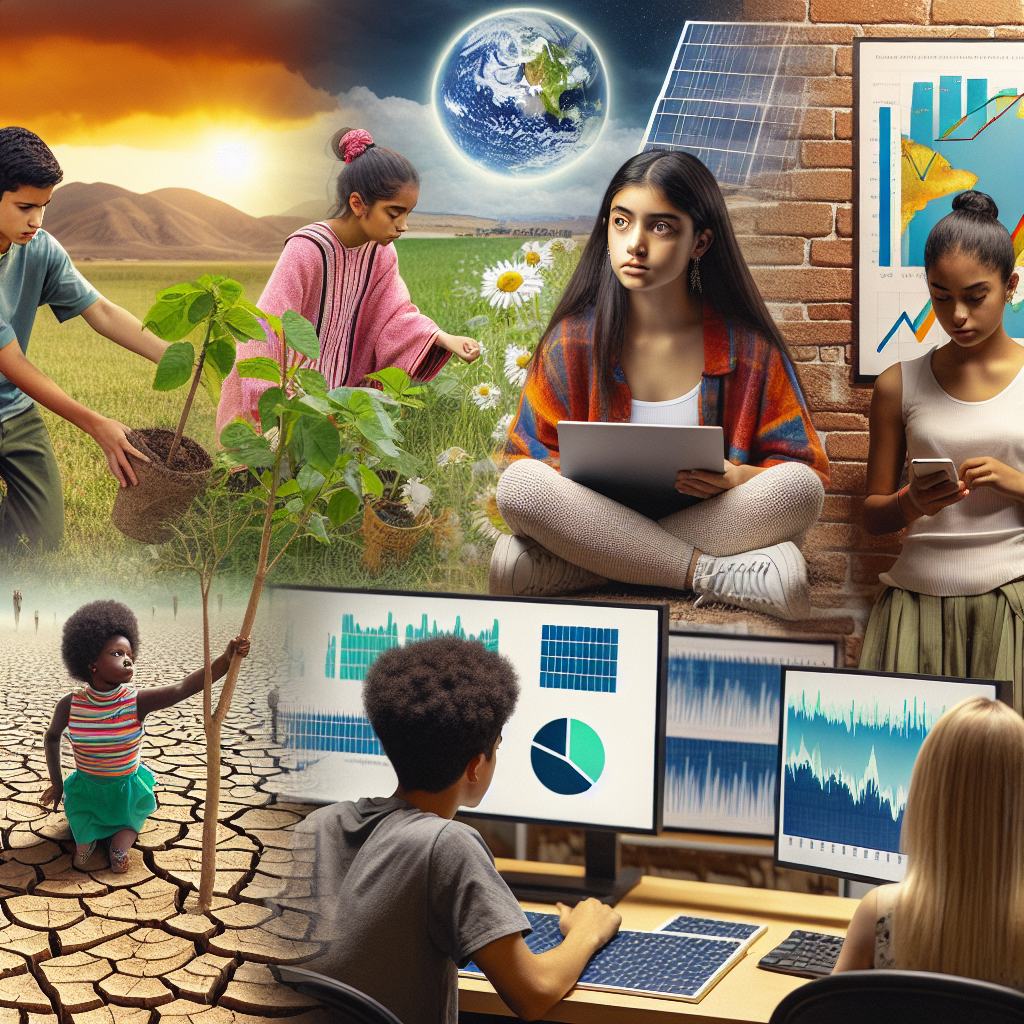
- ORIGINAL NEWS
Climate change could cost Americans born in 2024 nearly $500,000 in their lifetime
- SUMMARY
Climate change is having a profound financial impact on Americans, with extreme weather events causing record-breaking costs.
Between 2018 and 2022, weather and climate disasters resulted in over $617 billion in expenses, according to the U.S. Department of Treasury.
These events not only destroy property and infrastructure but also cause economic hardship, with an estimated 13% of Americans reporting financial difficulties due to climate change over the past year.
The effects of climate change extend far beyond immediate disasters, with rising temperatures leading to a number of long-term financial risks.
For every additional degree of warming, the economic impact on the U.S. is expected to increase significantly.
By 2024, Americans born that year could face nearly $500,000 in financial losses due to a range of factors, including higher housing costs, food prices, and taxes.
Housing is particularly vulnerable to climate change, with extreme weather events such as floods, droughts, and wildfires directly affecting property values.
Over 3 million Americans have already been displaced by disasters, and insurance companies are responding by raising premiums and reducing coverage in areas prone to these events.
Globally, natural catastrophes are costing insurers tens of billions of dollars annually, and these losses are expected to double in the coming decade.
The rising costs of climate change are also impacting healthcare, with pollution and climate-related effects estimated to cost the U.S. over $800 billion per year.
Heat waves, air pollution, and other climate-related factors contribute to various health conditions, including cardiovascular events, respiratory diseases, and mental health issues.
Governments are likely to raise taxes to cover the increasing costs associated with climate change, including disaster relief and infrastructure repairs.
This will further burden taxpayers, while businesses and communities may experience disruptions and lost wages due to extreme weather events.
Climate change is also influencing career choices and education.
Industries heavily impacted by global warming, such as fossil fuel companies, are seeing workers transitioning to different fields.
Additionally, new majors and educational programs are emerging in climate science, signaling the growing demand for expertise in this area.
While mitigating climate change presents challenges, it also offers opportunities for innovation and economic growth.
By investing in renewable energy, increasing energy efficiency, and developing adaptation strategies, we can create jobs, reduce emissions, and build a more resilient society.
- NEWS SENTIMENT CHECK
- Overall sentiment:
negative
Positive
“Slowing down and stopping climate change is a challenge, but also an opportunity for tremendous innovation and economic growth”
Negative
“The warming planet is proving costly for many Americans.”
“U.S. weather and climate disasters cost more than $600 billion between 2018 and 2022 — a record figure, according to the U.S. Department of Treasury.”
“The October report found that around 13% of Americans reported economic hardship over the prior year due to climate change.”
“With each additional degree of warming, the U.S. is expected to take a bigger economic hit, the Fifth National Climate Assessment warns.”


